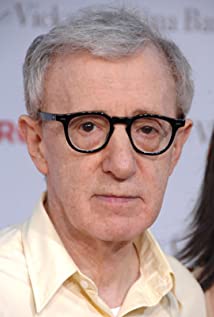
WOODY ALLEN
US, 2011, 192 minutes (113 minutes for theatrical release), Colour.
Directed by Robert B. Weide.
For audiences who would like an interesting and an entertaining overview of the life and career of Woody Allen, this is an excellent contribution. It traces his career up to his success with Midnight in Paris.
Woody Allen agreed to be part of this project, willingly giving interviews, at some length, in great detail, revisiting the scenes of his childhood in Brooklyn. His sister and producer, Letty Aronson, also contributes a great number of interviews – and there are visits to the site of his home, his school, pictures of his parents.
We see Woody Allen as precocious in his writing, even while at school, selling jokes to radio programs, being taken on by celebrity comperes and his career quickly underway.
There are many interviews, very interesting talking heads who cover their relationship with Woody Allen, appearing in his films, his producers, television hosts…
The theatrical version has an hour less than the television version which means that a number of films have been edited out. However, there is enough on the films that are included to give a strong impression of Woody Allen and his talent.
On the personal level, there is discussion of his relationship with Louise Lasser, his first wife, his relationship, personal and professional, with Diane Keaton, his relationship with Mia Farrow – and some intimations of the accusations which emerged in the 1990s, the impact of his marriage to his younger wife, Soon-ye Previn, indications that the issues would rise again (ironically instigated by the articles written by his son, Ronan Farrow – who may or may not be his son).
Whatever his personal life, Woody Allen has been a most significant contributor to American cinema.
Recommended is the 1997 documentary, Barbara Kopple's Wild Man Blues.
1. Audience interest in Woody Allen, his comedy, his films, his writing, over the decades?
2. Woody Allen himself, New York, Brooklyn, his talent is a young boy, writing, the beginnings of his career at a young age, radio, television? His acting and performance? Music and instruments and playing? His relationships, the scandals? The story of his films after 2012?
3. The importance of Letty Aronson, his sister, younger, her being his producer? The interviews, the explanation of the family, the stories about his mother, his life, school?
4. His writing, the radio, the style of comedy, the jokes? There is television patrons, the interviews with Dick Cavett, the other television personalities? His writing What’s New Pussycat, his comments, disappointment at his loss of control? Keeping control ever after?
5. The story of Take the Money and Run, the famous sequences about the hold-up and the gub? Its success, the 1970s, performance, writing?
6. Diane Keaton, Sleepers, Love and Death, Annie Hall, Diane Keaton and her comments? The impact of the Oscars?
7. The shift to Interiors, the homage to Ingmar Bergman? The contrast with the success of Manhattan, the views of Mariel Hemingway? The transition to Starlight Memories, the criticisms, the issue of his being funny or not?
8. The talking heads, Jack Rollins as producer, Marshall Brickman as cowriter, the performance?
9. The 80s, his achievement in the range of films and comedies, Zelig, Broadway Danny Rose…?
10. The 1990s, the long time with Mia Farrow, her role in the films, abuse? The situation, her performing despite the hostility in Husbands and Wives?
11. This film as an opportunity to see Woody Allen in close-up? His participation in the film, his friends talking to camera, at ease, the review of his life and career?
12. Woody Allen and his achievement? His place in American comedy? In American cinema?